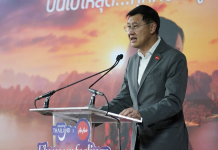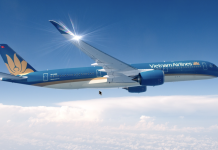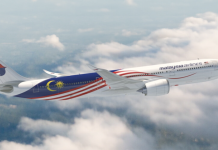BANGKOK, 2 July 2025: Bangkok Airways (PG) continues to drive its “Low Carbon Skies by Bangkok Airways” campaign, aiming to reduce carbon dioxide emissions.
The airline has officially announced the adoption of Sustainable Aviation Fuel (SAF) on its commercial flights, reinforcing Thailand’s green aviation industry and laying a crucial foundation for environmentally balanced aviation development in the future.

The initiative took effect on 1 July 2025.
Bangkok Airways Public Company Limited President Captain Puttipong Prasarttong-Osoth commented at the launch: “The official use of SAF on commercial flights marks a significant milestone in the airline’s transition toward a more environmentally friendly aviation future.
“This initiative aligns with the goal of achieving Net Zero Carbon Emissions, which lies at the heart of sustainability policies in the aviation sector. In 2024, the airline began using SAF on a pilot flight operating between Samui and Bangkok. This time, SAF will be used on commercial flights departing from Bangkok (Suvarnabhumi Airport) to international destinations, including Phnom Penh, Siem Reap, Luang Prabang, and the Maldives.”
Bangkok Airways will begin using Sustainable Aviation Fuel (SAF) blended at 1% with 99% Jet A-1 fuel, which can help reduce carbon dioxide emissions by approximately 128 kilogrammes of CO₂ per flight.
Bangkok Airways is committed to evolving into a truly “Sustainable Airline,” guided by the ESG framework, which is integrated across all aspects of its operations.
The airline upholds responsibility in three aspects: Environmental, Social, and Governance. In terms of environmental responsibility, Bangkok Airways focuses on climate change management, waste management, efficient use of resources, and the adoption of alternative energy sources. It continues to explore comprehensive measures to improve fuel efficiency, conduct corporate carbon footprint reporting, expand waste separation bins, and promote the upcycling of operational waste into products that benefit both society and the environment.
The airline also encourages stakeholders to participate in environmentally friendly services and initiatives, such as the “Love Earth, Save Earth” project, now in its 8th year, which involves planting coconut trees to support the ecosystem of Samui Island.






